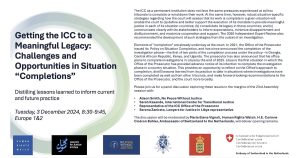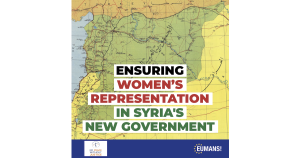4 November 2015
In advance of the visit in the United Kingdgom of Egypt’s President Sisi, the European Working Group on Egypt (which includes among its supporting members Emma Bonino, former Italian Minister of Foreign Affairs and founder of No Peace Without Justice) addressed an open letter to British Prime Minister David Cameron that calls on him to raise issues of the rule of law and human rights, and in particular to press President Sisi to release people unjustly imprisoned.
Dear Prime Minister,
Tomorrow you will receive President Abdel-Fattah el-Sisi of Egypt in Downing Street. Few would deny the importance of maintaining contact with Egypt’s leadership, in light of the range of interests that the UK has with Egypt and the significant security threats emanating from the Middle East. But it would be incompatible with British and European interests and values to give President Sisi the endorsement of a Downing Street welcome without also making clear that Egypt’s current direction raises serious concerns. You should take this opportunity to press Mr. Sisi to ensure respect for the rule of law and human rights, and call on him to free more prisoners detained illegally or due to unjust laws.
In May of this year, Foreign Office minister Tobias Ellwood said that Britain looked to Egyptian authorities “to apply the rule of law consistently in line with international standards, and to protect the political and legal rights of all Egyptians as the basis for the country’s future stability”. It is hard to deny that Egypt is falling short of these standards. In the last few years, tens of thousands of people have been arrested, often for nothing more than non-violent protest and political dissent; hundreds have been sentenced to death after mass trials that do not meet recognised standards of due process.
There is strong evidence that the closing of space for legitimate political activity and freedom of expression is pushing some moderate opponents of the regime towards radicalisation and violence. The result of political repression is disillusionment with the political process, illustrated by the very low turnout in the current parliamentary elections, with worrying implications for Egypt’s stability.
At a time when President Sisi is seeking to use his interaction with foreign leaders to project an image of political legitimacy, you have an opportunity to show that Britain’s endorsement is not unconditional. You should make clear that Britain believes that an end to the policy of political repression is essential to restore the rule of law in Egypt and reverse the drift toward greater instability. In particular you should press President Sisi to take steps to release or grant amnesties to those people who remain in prison for political offences or for breach of the anti-protest law. In September, Mr Sisi released 100 prisoners ahead of his trip to the UN General Assembly in New York. He should be pressed to do more to correct the authoritarian drift of the last two years.
Such an approach would contribute to encouraging Egypt towards a path that offers the best hope for its future development, as well as being most consistent with the objectives that Britain and the EU more widely seek to fulfill in this important relationship.
Sincerely,
The European Working Group on Egypt (EWGE)*
- Anthony Dworkin, European Council on Foreign Relations (ECFR) co-chair
- Issandr El Amrani, International Crisis Group (ICG) co-chair
- Rasmus Alenius Boserup, Danish Institute for International Studies (DIIS);
- Haizam Amirah Fernández, Real Instituto Elcano (RIE);
- Koert Debeuf, International Institute for Democracy and Electoral Assistance (IDEA);
- Dina Fakoussa, German Council on Foreign Relations (DGAP);
- Stéphane Lacroix, Centre d’Etudes et de Recherches Internationales, Sciences Po (CERI);
- Daniel Levy, European Council on Foreign Relations (ECFR);
- Arnold Luethold, Geneva Centre for the Democratic Control of Armed Forces (DCAF);
- Charles Powell, Real Instituto Elcano (RIE);
- Stephan Roll, German Institute for International and Security Affairs (SWP);
- Patrycja Sasnal, Polish Institute of International Affairs (PISM);
- Nathalie Tocci, Italian Institute for International Affairs (IAI);
- Richard Youngs, Carnegie Endowment for International Peace (CEIP).
The EWGE has been endorsed by the following prominent Europeans:**
- Emma Bonino, former Minister of Foreign Affairs and founder of No Peace Without Justice, Italy
- Gunilla Carlsson, former Minister for International Development Cooperation, Sweden
- Jean-Marie Guéhenno, President and CEO, International Crisis Group; former Under Secretary General for UN Peacekeeping Operations
- Marietje Schaake, Member of the European Parliament
*This letter reflects the views of the individual signatories; institutional affiliations are listed for the purpose of identification only. The launch statement of the EWGE is available here.
** The list excludes members who, given the nature of their work, have requested confidentiality.




